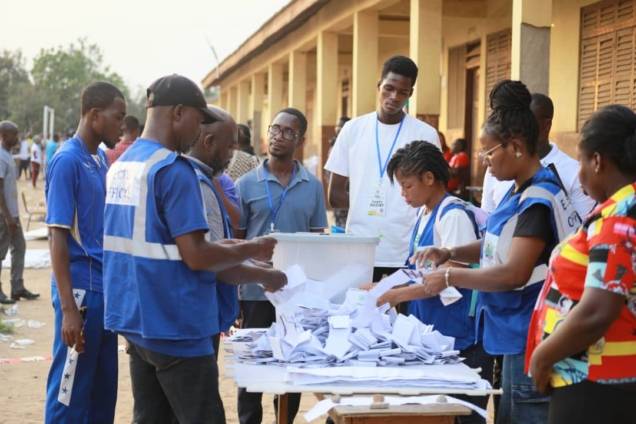A recent Supreme Court ruling has sparked intense debate about the Electoral Commission's (EC) handling of parliamentary election disputes in Ghana. Clara Beeri Kasser-Tee, a lecturer at the University of Ghana Law School, has expressed her disappointment at the EC's failure to hear the National Democratic Congress (NDC) side in the ongoing re-collation disputes.
The Supreme Court's decision to quash the re-collated results for Tema Central, Ablekuma North, Techiman South, and Okaikwei Central in the 2024 parliamentary elections has highlighted the EC's responsibility to handle allegations of irregularities impartially. According to Kasser-Tee, the EC has a duty to act fairly and reasonably when allegations of duress and non-compliance are made.
Kasser-Tee emphasized that fairness requires the EC to hear from all parties involved before making decisions. She noted that the persons against whom allegations are made must be given an opportunity to be heard. The lecturer also stressed that allegations of fraud must be substantiated, and that fairness in decision-making fosters respect, even when outcomes may not favor all parties.
The Supreme Court's ruling also highlighted procedural flaws in the re-collation process. The court ordered that the mandamus application remain active and be reheard by a different judge on Tuesday, December 31. This development has raised questions about the EC's ability to manage electoral disputes effectively.
Kasser-Tee's comments underscore the need for the EC to prioritize fairness and transparency in its decision-making processes. As an administrative body, the EC has a critical role to play in maintaining the integrity of Ghana's electoral process. By acting impartially and giving all parties a fair hearing, the EC can help build trust and confidence in the electoral system.
The ongoing controversy surrounding the re-collation disputes serves as a reminder of the importance of electoral integrity in Ghana's democracy. As the country navigates this challenging period, it is essential that the EC and other stakeholders prioritize fairness, transparency, and accountability in their actions.




No comments yet
Be the first to share your thoughts!